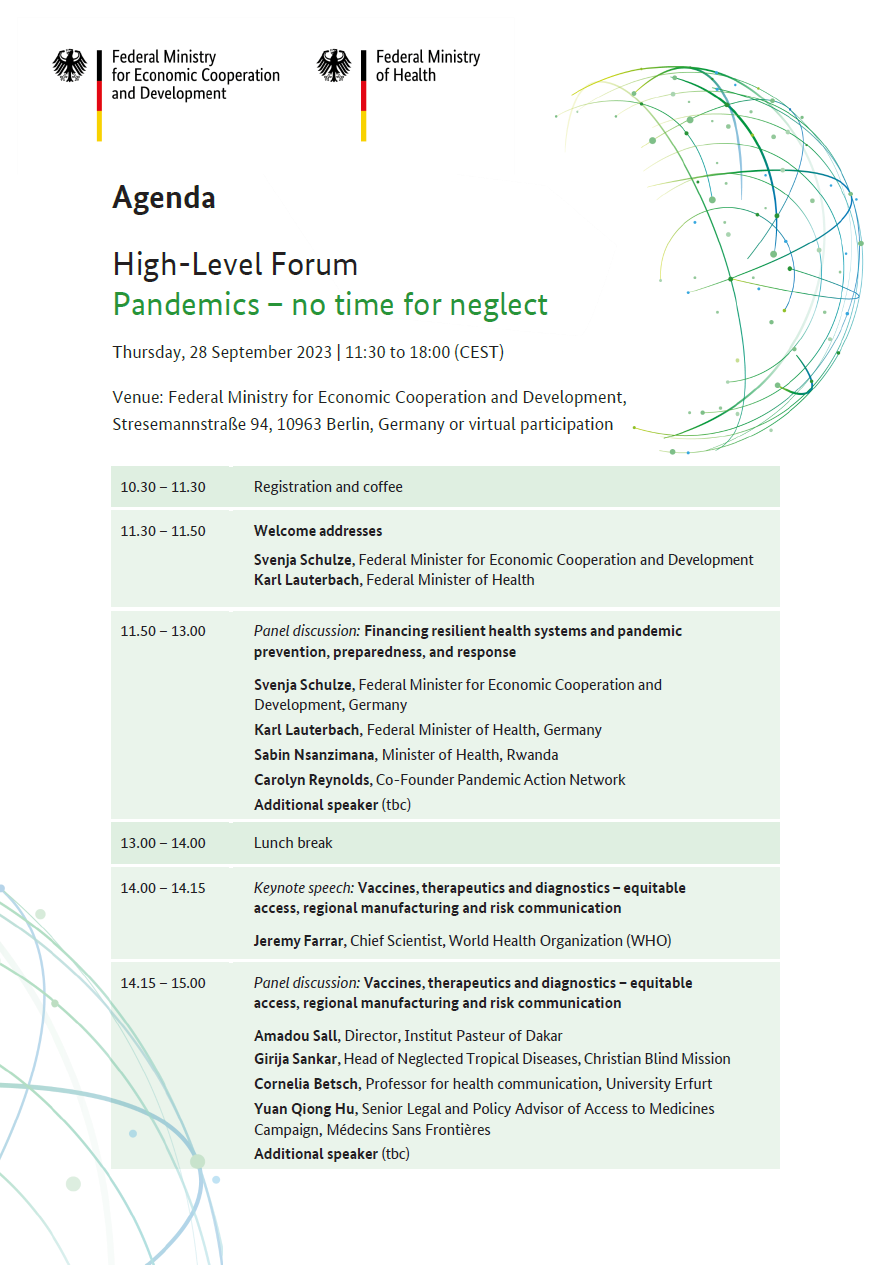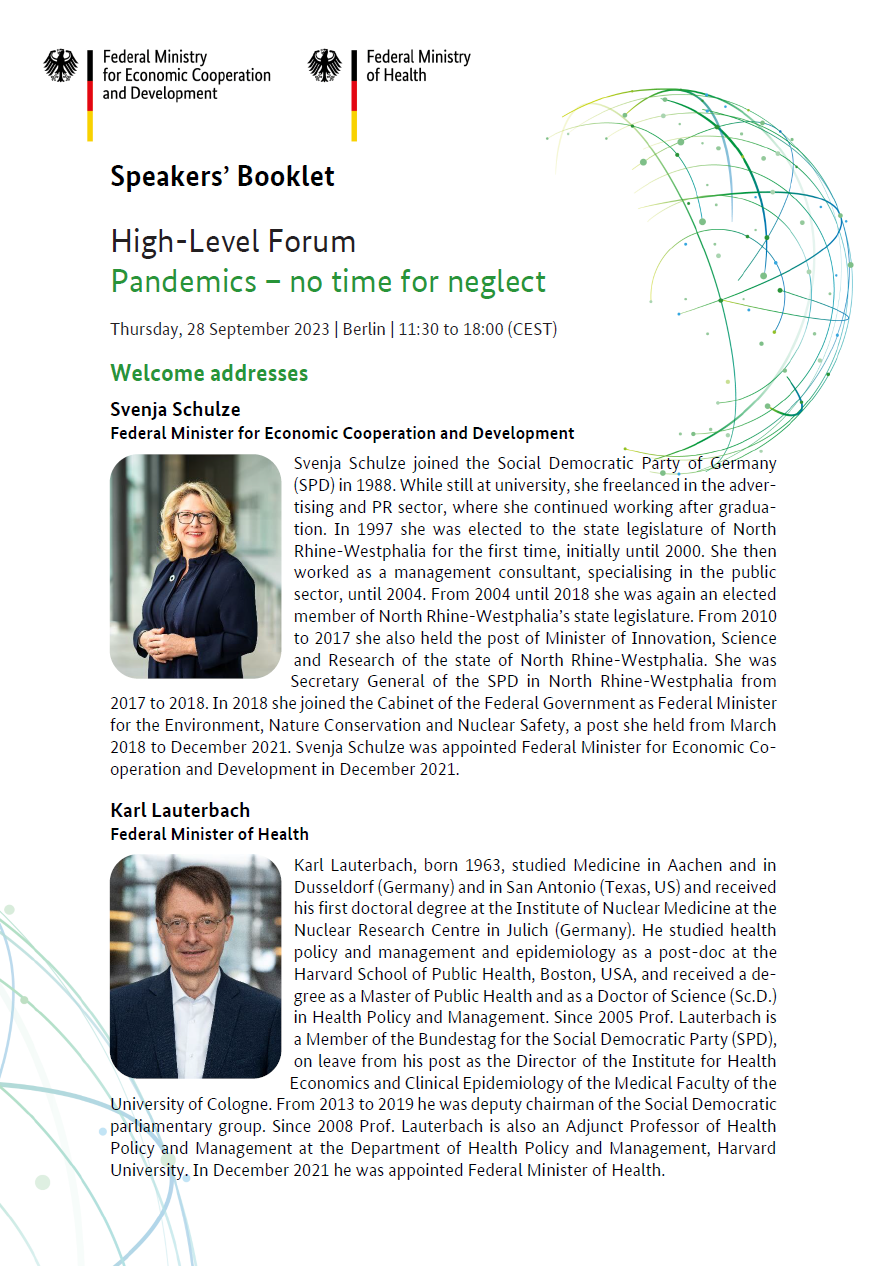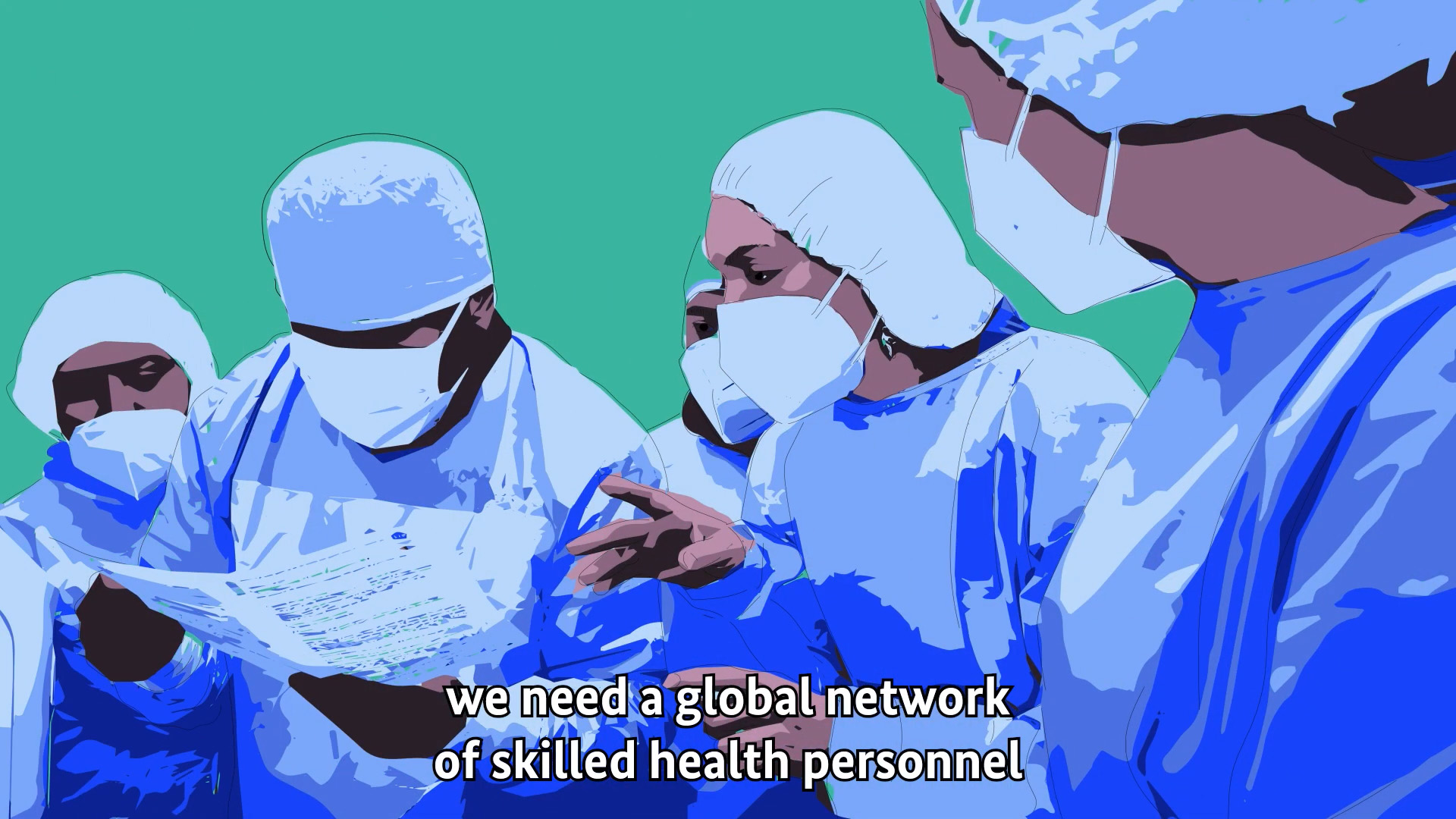28 September 2023 High-level forum: Pandemics – no time for neglect
Live stream Follow the conference starting at 11:30 CEST, 28 September 2023
Agenda
| 10:30–11:30 | Registration and coffee |
| 11.30–11.50 | Welcome addresses
|
| 11.50–13.00 | Panel discussion: Financing resilient health systems and pandemic prevention, preparedness, and response
|
| 13.00–14.00 | Lunch break |
| 14.00–14.15 | Keynote speech: Vaccines, therapeutics and diagnostics – equitable access, regional manufacturing and risk communication
|
| 14.15–15.00 | Panel discussion: Vaccines, therapeutics and diagnostics – equitable access, regional manufacturing and risk communication
|
15.00–15.15 | Keynote speech: Integrated surveillance and public health intelligence, data exchange
|
| 15.15–16.00 | Panel discussion: Integrated surveillance and public health intelligence, data exchange
End of virtual broadcast of the event |
| 16.00–16.30 | Coffee break |
| 16.30–17.45 | Parallel sessions: Breakout sessions with a focus on pandemic prevention (only on-site in Berlin) Session 1: Health system strengthening: a prerequisite for pandemic prevention
Session 2: Human-animal interface: spill-over prevention
Session 3: Water, sanitation, hygiene for infection prevention
|
| 17.45–18.00 | Wrap-up and closing
|
Context
As the acute response to Covid-19 is coming to an end, we observe a drop in public and political attention to pandemic prevention, preparedness, and response. Multiple other global crises, which also demand attention and put additional stress on public budgets, especially in low and middle income countries, amplify this development. But the next pandemic might be just ahead of us. Scientists forecast a growing risk of future pandemics due to population density, mobility, climate change, and biodiversity loss, making continued efforts for prevention and preparedness ever more important. There is no time for neglect.
Our efforts need to take into account the Global South’s political priorities, financial scope and need for specific pandemic preparedness measures. We need to enable the investments made specifically for COVID-19 during the acute phase of the pandemic to benefit other areas of healthcare (e.g. neglected tropical diseases) and to contribute to achieving Universal Health Coverage and the Sustainable Development Goals. Investments in health – and especially in pandemic prevention and preparedness – generate a very high return, and focusing solely on the immediate cost would be short-sighted.
Are our health systems ready for the next health crisis?
As at: 26/09/2023



